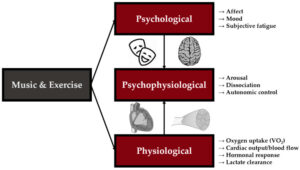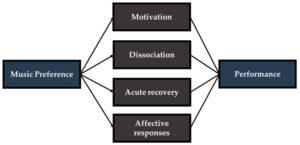
Our current society is suffering from depression, loneliness, and mental health issues post-pandemic, and every day, these issues continue to increase at exponential rates. In response, current research is attempting to address solutions to the issues of depression and mental health problems. While it seems that this “depression problem,” is one relegated only to the U.S., the rest of the world is not safe from this mental disease, “Globally, an estimated 5% of adults suffer from depression” (Lee et al. “National, state-level…”). A staggering 5% of adults are being crippled and are struggling with this issue while barely maintaining a sense of “normalcy.” The severity of depression can be different from person to person, but the feeling of constant sadness or low self-worth is mostly steady. Research indicates that “During 2020, 18.4% of U.S. adults reported having ever been diagnosed with depression” (Lee et al. “National, state-level…”). Some common symptoms of depression can include “poor concentration, feelings of excessive guilt or low self-worth, hopelessness about the future, thoughts about dying or suicide, disrupted sleep, changes in appetite or weight, feeling very tired or low in energy.”(Lee et al. “National, state-level...”). These effects can force people out of work, cause them to lose progress in school, and even lead to the loss of relationships. In the worst of cases, depression can result in suicide. In 2022, a study showed that 49,449 people committed suicide (CDC “Suicide data and statistics…”). These statistics are incredibly frightening, and these numbers only get worse since this was a 2.6% increase from 2021 (CDC “Suicide data and statistics…”). Knowing now the extreme consequences of depression, what can we, the general population, do to help each other and ourselves? Music and music therapy have been shown to be astonishingly helpful to those who suffer from depression.

Scholars are currently researching methods outside of traditional medicine to help us cope with the mental state our world finds itself in and that is where music and music therapy can come into play. Music can play a significant role in therapy and counseling, it has been known to help with mood, depression, and other mental and physical diseases that plague our society today (Hoffer et le. “How music affects your mind, mood and body“). Everyone has used music in some aspect to induce, progress, stimulate, or change a mood or feeling they are having, even without realizing it. For example, when someone goes to the gym and brings their earbuds, they may play a gym playlist or “gym music.” But what is gym music? There is no one set of gym music, it can really be anything we personally enjoy, just like there is no single motivation to go to the gym. There is an overlying theme to the gym music we play, though, just like there is an overlying theme for us going to the gym. We go to the gym to be healthier at some capacity. Our gym music gives us the push needed to get that extra rep or time in the gym; it pumps us up, it stimulates us to keep going. One person might like heavy metal to give them that stimulus, while someone else might like an indie artist. The music that provides the dopamine and the stimulus for the gym depends on the person.
Music can produce more than just mental changes for someone at the gym; it can even be physiological, “The collective evidence suggests that music induces alterations in physiology in two broad areas: (1) neural activation (i.e., brain activity, autonomic responses, etc.), (2) metabolic responses (i.e., VO2/energy expenditure, lactate clearance, hypothalamic pituitary axis control, etc.)” (Ballmann “The influence of Music Preference…”). This is just scratching the surface of what music can do, but these are just clear and common ways to understand its impact on us. Furthermore, “…listening to music during exercises like cycling has been linked to the prevention of decreased heart rate variability (HRV) following exercise indicating the preservation of parasympathetic stimulation following physical stress” (Ballmann “The influence of Music Preference…”). The changes in a person’s body are beyond extraordinary, but the benefits to someone’s mental health are more significant.

An example of this is the Iso-Principle which reveals the idea that music changes mood and shows how one can implement a strategy to do so. In short, Iso-Principle studies show that a playlist which gradually shifts in mood and tone can also shift someone’s mood. For example, when someone is sad but wants to be happy, this principle would have a playlist start from sad music and gradually shift to the desired tone/mood of being happy (Starcke et al. “Emotion modulation through music…”). This is something that anyone can implement if they want to, but it is shown to be effective, “Music can validate your current emotional state and influence your emotional destination… It works most effectively when we find a song matching our current feeling or mood.” (Hoffer et le. How music affects your mind, mood and body). The concept of validating someone’s feelings or thoughts is often overlooked, but that is often the basis of moving past and understanding a difficult emotion. When faced with a difficult situation of a complex emotion, one tends to overshadow the thought or pretend it is not there. While some tough love can be helpful, pretending or ignoring an emotion can lead to the emotion growing and bringing about more significant issues. Music can often be the validating voice for someone with no one around to tell them what they feel is real.
The great thing about music is it affects everyone differently, meaning one person’s “sad to happy” playlist might not be the same as another. Another aspect that music can heavily alter is someone’s sleep. As previously mentioned, sleep, or lack of it, can alter mental states and help depression creep up on someone. One particular study shows how music can help those affected by insomnia resulting from depression, “A key depression symptom is sleep disturbances (insomnia). Reduced sleep quality in depression includes delay in sleep onset and difficulty maintaining sleep. Unresolved sleep disturbances predict prolonged recovery and can lead to an increase in depression symptoms” (Lund et al. “Music to improve sleep quality in adults…”). This danger of losing sleep gives us a clear guide of how important all the things we do in our day-to-day life affect and keep our mental health stable. This study suggests that using music to help with sleep and an app called “MusicStar” in combination with a sound pillow to aid in prolonged sleep can produce effective results. The primary outcome astonishing, “Comparison[s] of PSQI sleep quality scores between groups showed a decrease in global scores from baseline to 4 weeks in the music intervention group. The change score showed a difference of −2.1 points (95% CI: −3.3; −0.9, p = <.001 ) between groups at 4 weeks, indicating a statistically significant decrease of insomnia symptoms in the music intervention group…” (Lund et al. “Music to improve sleep quality in adults…”). These results are extremely interesting because they suggest that music is a tool everyone can use in their day-to-day lives to help combat depression and other complex emotions. This technique can be used with or without this app, and people can use music to go to bed with earbuds, or without. The method can also work for some people, while others like silence when they sleep, but the great part about this is that it is extremely accessible. The current issue with this music method is that it is not widespread or well-known; the vast majority of people use white noise to fall asleep, but not as many people understand the benefits some music can have to sleep, and this article is an excellent way for people to be aware of.
Another idea that is often a source of confusion or misinformation is how the brain and music actually work and connect. Harvard Medical School has an amazing and easy-to-digest article on how this works. The brain is one of the most complicated and diverse things we can study and its reaction to music is extraordinary. Just like one would think, music reaches the brain through the ears, but it is not a straight shot from there, “The external ear collects sound waves, and the ear canal funnels them to the eardrum. As the waves strike the eardrum, they cause it to vibrate. The vibrations are relayed along the chain of tiny bones in the middle ear until they reach the third bone, the stapes, which connects to the cochlea” (Harvard Health Publishing Music and health). While all this is going on, the sound has not even hit the brain yet. There are even more steps to this before it gets to the brain, but there, the processes become even more complex. To decode different aspects of a song for example, “Studies using MRI and positron emission tomography (PET) scans suggest that nerve networks in different parts of the brain bear primary responsibility for decoding and interpreting various properties of music” (Harvard Health Publishing Music and health). Every part of the brain works together to make one cohesive song sound like it should. An area in the right temporal lobe is needed to perceive pitch; another center is needed to decode timbre. The cerebellum processes rhythm, and the frontal lobes are what interpret the emotion of the song (“Harvard Health Publishing Music and health”). As stated, music can have different emotional capacities for everyone, so by taking a look at the song below, you can run your own little experiment.
This song is from a movie soundtrack called Minari, and the song is by Emile Mosseri. Take a moment and sit down close your eyes and listen to the song. How does this song instantly make you feel? Did that emotion change in the middle of the song, or did it change again at the end of the song? These are all things your brain is deciphering in real-time. How many instruments did you hear? Did you hear any notable harmonies? All these things can be attributed to how you feel about the song and how it can change your emotional state. In the context of the movie Minari, it is not meant to be depressing or heartbreaking exactly. Looking at the context of this song and its intended purpose, it shows a broken man, but not one that has given up, the song is a song of hope in a place without hope. You may not have had this emotional impact, but that does not mean you are wrong. It simply means your mind used the song in a way that it felt most effective to your needs or even wants. As each person interprets a song differently, this makes the idea of music therapy that much more impactful, it gives us the ability to use music as an aid. In this article, I show that music can be an aid in many ways in both mind and body, but there are so many more ways.” Music can help retain essential information despite memory loss. Music memory is stored in the hippocampus, centrally located in the brain. Therefore, music memories are less likely to be negatively impacted by age or disease” (Hoffer et le. “How music affects your mind, mood and body”). This is just one of the many ways that music can help us in our daily lives.

We have discussed that music has been shown to have a tremendous effect on our body. However, the discussion has mostly been focused on younger generations, nevertheless, music has been seen to have changes on senior citizens as well. A study showed that after the age of 65, people have a higher chance of falling, which can be a significant detriment to their health (“Harvard Health Publishing Music and health”). In a study of 134 men and women over the age of 65 who were at risk of falling the group was split in half and one half was randomly assigned to a program that would train them with various movements in time with music, and the other half went about their normal tasks. (“Harvard Health Publishing Music and Health”). The results were quite shocking, “At the end of six months, the “dancers” exhibited better gait and balance than their peers — and they also experienced 54% fewer falls. Similar programs of movement to music appear to improve the mobility of patients with Parkinson’s disease” (“Harvard Health Publishing Music and Health”). This makes it such an important study to look at to show the effects that music can have go beyond just the mental effects.
Ultimately, music therapy is an amazing source that should be utilized more often but, sadly, does not receive as much attention. There is an array of music therapies, but the one I wanted to bring light to is improvisational music therapy. This can be used in many ways, I would like to highlight how it can be used to “mobilize affect…Musical mobilization of affect involves the use of spontaneously created music to stimulate emotional expression” (Jackson, 352). This form of music therapy helps those with clinical depression who find themselves “stuck” in a state of mind (Jackson, 352). Further research indicates that “Improvisation for mobilization of affect is a non-in-depth, augmentative-level music experience that focuses on increasing dynamic change in client affect through engagement in increasingly dynamic, expressive music-making.” (Jackson, 352). Just as mentioned before, this form of music therapy uses all the aspects of music mentioned, exploring pitch range, the range of playing, rhythmic complexity, melody, etc….Because the purpose of this type of experience is to increase the dynamic nature of music-making, thereby increasing changes in affect, and not to explore deeper issues…” (Jackson, 352). This type of music therapy is a great gateway into such methods, as it is much less invasive than others but can still have extraordinary results with more surface level depression issues.
In hopes of spreading encouragement to those suffering from depression and anxiety, I expect that this valuable information about music and music therapy can be a useful tool for those in need. Not only is music therapy an amazing form of alternative medicine, but it is much less invasive at times than traditional medicine and can be extremely helpful in tandem with traditional medicine. Music on its own is also much more readily available to those in immediate need of aid. It is able to be a shoulder to lean on in times of solitude and loneliness, when all other sources of help may not be.
Bibliography
Ballmann, Christopher G. “The Influence of Music Preference on Exercise Responses and Performance: A Review.” Journal of functional morphology and kinesiology vol. 6,2 33. 8 Apr. 2021, doi:10.3390/jfmk6020033
Guidelines for Music Therapy Practice in Mental Health, edited by Lillian Eyre, Barcelona Publishers, 2012. ProQuest Ebook Central, https://ebookcentral.proquest.com/lib/stmarytx-ebooks/detail.action?docID=3117668.
Hoffer, Megan, et al. “How Music Affects Your Mind, Mood and Body.” Tallahassee Memorial HealthCare – Non-Profit Medical Care, 12 Feb. 2022, www.tmh.org/healthy-living/blogs/healthy-living/how-music-affects-your-mind-mood-and-body.
Lee, Benjamin. “National, State-Level, and County-Level Prevalence Estimates of Adults Aged ≥18 Years Self-Reporting a Lifetime Diagnosis of Depression — United States, 2020.” MMWR. Morbidity and Mortality Weekly Report, vol. 72, no. 24, 2023, https://doi.org/10.15585/mmwr.mm7224a1
Lund, Helle Nystrup, et al. “Music to Improve Sleep Quality in Adults with Depression-Related Insomnia (MUSTAFI): Randomized Controlled Trial.” Nordic Journal of Psychiatry, vol. 77, no. 2, Feb. 2023, pp. 188–97. EBSCOhost, https://doi.org/10.1080/08039488.2022.2080254.
“Music and Health.” Harvard Health, 11 Sept. 2021, www.health.harvard.edu/newsletter_article/music-and-health.
Starcke, Katrin, et al. “Emotion Modulation through Music after Sadness Induction—The Iso Principle in a Controlled Experimental Study.” International Journal of Environmental Research and Public Health, vol. 18, no. 23, Nov. 2021, p. 12486. https://doi.org/10.3390/ijerph182312486.
“Suicide Statistics.” Depression and Bipolar Support Alliance, 2023, www.dbsalliance.org/crisis/suicide-prevention-information/suicide-statistics/.



20 comments
Jordan Robbins
Hi, through your writing I learned so much about how music can influence the soul for better or for worse. I remember the song “Bad Habit”-Steve Lacy, and how many people were singing it not only for the beat but for what he was saying even though it was depressing. I do wonder, what songs influence or uplift you?
Silvia Benavides
I knew music had an impact on how people felt and the way they reacted to things. I did not however know the validity of those emotions and the connections with mental health. Amazing work!
Carlos Anthony Alonzo
This article was like a breath of fresh air to read! Your article’s exploration of music’s emotional and mental impact highlights the necessity and influence on human well-being. From the mood regulation to the cognitive improvement, the fact is clear that music has therapeutic properties. It seems that this is applicable across disciplines to improve mental health in many different fields. Again, well done!
Mariana Chamorro
David, I love your publication on music therapy in tackling depression and mental health challenges is seriously impressive. I love how you break down the ways music can lift our spirits and even improve our sleep. It’s refreshing to see such a cool approach to addressing these tough issues.
Mariana Chamorro
David, I love your publication about the effectiveness of music therapy in treating depression and other mental health issues. I like the way you deconstruct how music may cheer us up and even help us sleep. Seeing such a calm attitude to dealing with these difficult topics is nice.
Fernando Milian
This article was super interesting! It’s amazing to learn how powerful music can be, not just for chilling or getting pumped at the gym, but for serious stuff like helping people with depression and even improving sleep. I didn’t realize that music therapy could do so much, from changing our mood to helping with physical reactions like heart rate during workouts. It’s kind of scary to see how common depression is and the effects it can have, but it’s good to know there are different ways to tackle it beyond just medication. It’s great that the article highlights how we can use music in our everyday lives to make a positive impact on our mental health. I hope more people get to read about this and see how they can use music to feel better or help others!
Stela Naomi Sifuentes
Overall, the mental and emotional impact of music is a result of its ability to tap into our deepest emotions, memories, and neurological responses, providing a powerful means of communication and expression that transcends language and culture. What an article David!
Martin Martinez
Music has had an effect on my life like nothing else. As an aspiring composer, I look to make people feel good when they listen to music, as I have when I listen and play. It is good to know that people are trying to use music therapeutically more and more; they are now tapping into unexplored potential.
Sebastian Hernandez-Soihit
A very powerful article that could prove immediately useful to a lot of people and even save lives. I would be interesting to note what kind of music is popular is some countries and select areas and see wether that may or may not have a significant statistical correlation between happiness or not. Well done!
Madison Hinojosa
I wholeheartedly agree that music plays a profound role in people’s lives and has a remarkable impact in various ways. From uplifting our spirits during tough times to serving as a source of solace and inspiration, music holds a special place in our hearts and minds. I find that music has a transformative effect on my well-being, serving as a powerful tool for relaxation and motivation. Whether I’m feeling happy, sad, or anything in between, music never fails to resonate with me on a deeper level and provides a sense of comfort and understanding. Its ability to evoke emotions and convey messages beyond words is truly extraordinary.